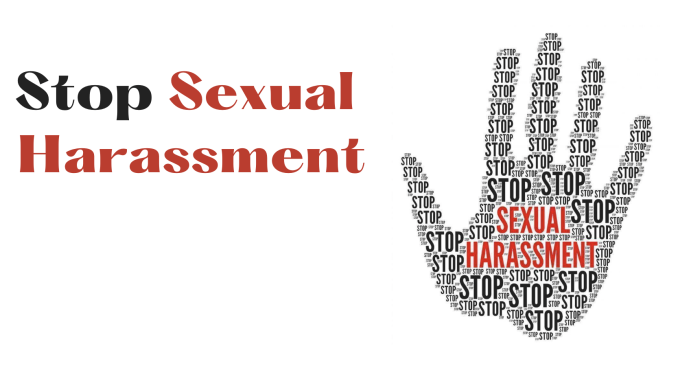
By Jada Simon
It may surprise people to know that the term “sexual harassment” was coined in the 1970s but not taken seriously until the Hill v. Thomas case of 1991.
The Hill v. Thomas case was a Supreme Court nominee hearing where Anita Hill accused Clarence Thomas – chair of the Equal Employment Opportunity Commission at the time – of sexually harassing her when she was an advisor to him. Succeeding that case, sexual harassment training came to fruition in 1995 and now we have movements today still attempting to combat sexual harassment – most popularly the #MeToo movement.
It’s evident that sexual harassment trainings have clearly failed to resolve sexual harassment issues within the workplace.
I don’t think it would surprise anyone to know that at some corporations, sexual harassment trainings are just given to workers to fulfill state regulations and prove that employers are following protocol to ensure employee safety.
According to nyc.gov, “So long as it meets the requirements of NYC Local Law 96 (2018), employers may develop their own training or hire an outside party to provide the training.” This implies that all employers have to do is make sure that the training is given – they don’t even have to be so closely involved nor do they have to be the ones to implement it.
Oftentimes, especially in New York City, complaints of sexual harassment are not treated with the necessary level of severity. This is because of certain ideals held in NYC such as “snitches get stitches” and the people of New York tend to be more concerned about getting hurt than confessing the truth.
This mentality has continued for so long without a change, so most people in New York City ignore the “if you see something, say something” rule. Unfortunately for many victims, reporting something tends to go nowhere and speaking up can put a target on their backs.
From the age of 12 to now, I, without knowing, faced sexual harassment on countless occasions. I just happened to never notice because usually it was in the form of catcalling, and no one ever told me that catcalling was sexual harassment. More often than not, catcalling is not considered for what it is: harassment. And, oftentimes I was told to ignore it. Usually my friends would also just walk away to avoid any trouble, so I automatically assumed that was the right thing to do.
With more care in teaching society about sexual harassment education, there could be more self-awareness rather than ignorance of the issue.
At CUNY, there’s something called SPARC, which stands for Sexual and Interpersonal Violence Prevention and Response Course. The program was created for the university’s colleges to comply with the New York State’s Enough is Enough law. The training is meant to make students aware of sexual harassment resources, teach them how to report sexual harassment and what the sexual harassment policies are.
Just like the mandatory nyc.gov training that NYC residents have to take in order to work, the SPARC training is just another requirement to fill. This is easy to see because also in comparison to the nyc.gov training, it is very vague, often repeats itself, and just incorporates a few videos or examples that reiterate those that come before it.
Also, being that it is mandatory for enrollment but can be done very quickly, students are likely to complete the training without actually paying attention. Similar to sexual harassment work trainings, there are no follow-ups or room for more in-depth questions.
Both forms of sexual harassment trainings seem to share similar problems – so here’s what I suggest. Sexual harassment trainings should allow for follow-up questions, not an FAQ section that is often not helpful. Instead, there could be a meeting where everyone takes the training as one, encouraging more serious questions to be answered.
Employers could also individually speak to employees every six months to gauge the level of safety they feel in the work environment and to adjust the workplace based on employee feedback.
For CUNY schools, there should be a couple of boards around campus with sexual harassment policies and resources that will make it difficult for students to overlook them.
NYC employers, college administration, and government leaders can do much better at combating sexual harassment. Citizens need to take the ins and outs of sexual harassment seriously. For that to happen, the policies have to be enforced and continue to be presented until NYC residents get it.
Until that is worked out, NYC sexual harassment trainings will continue to be a bust.
